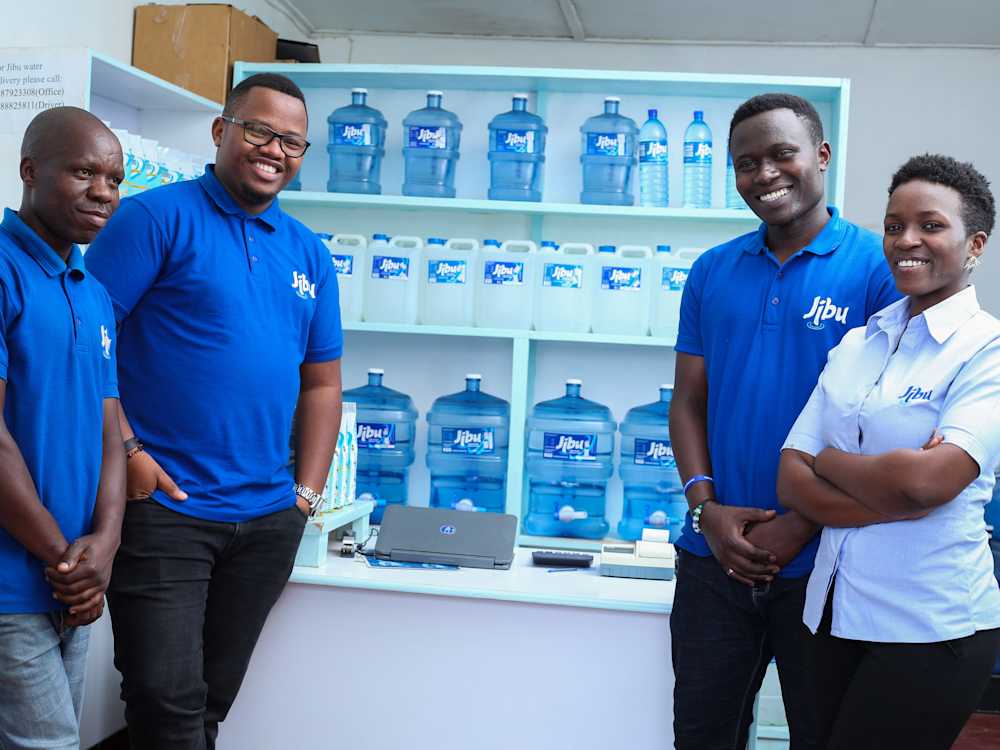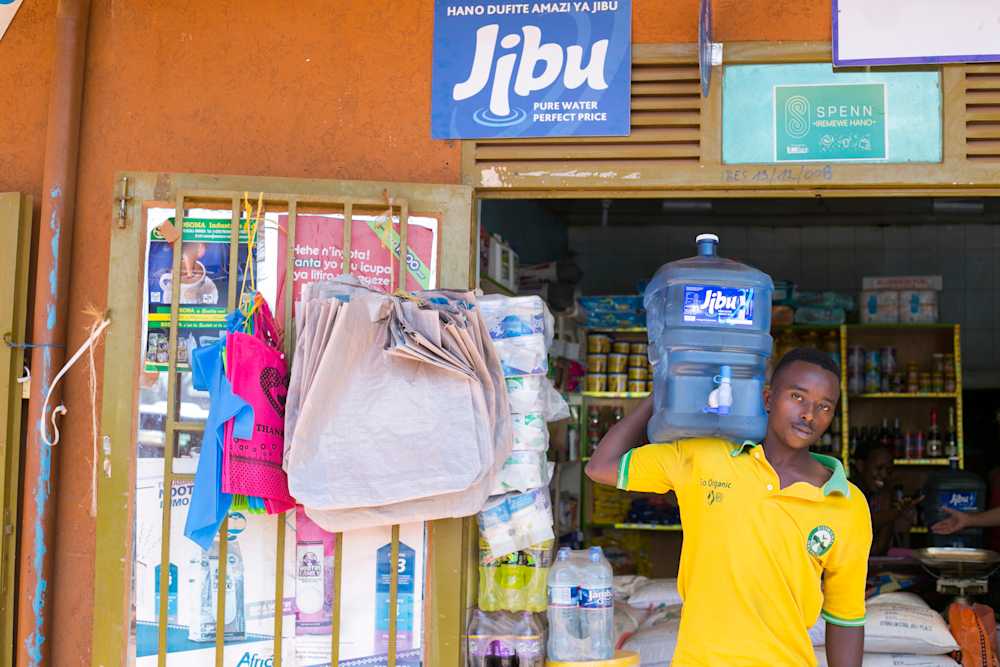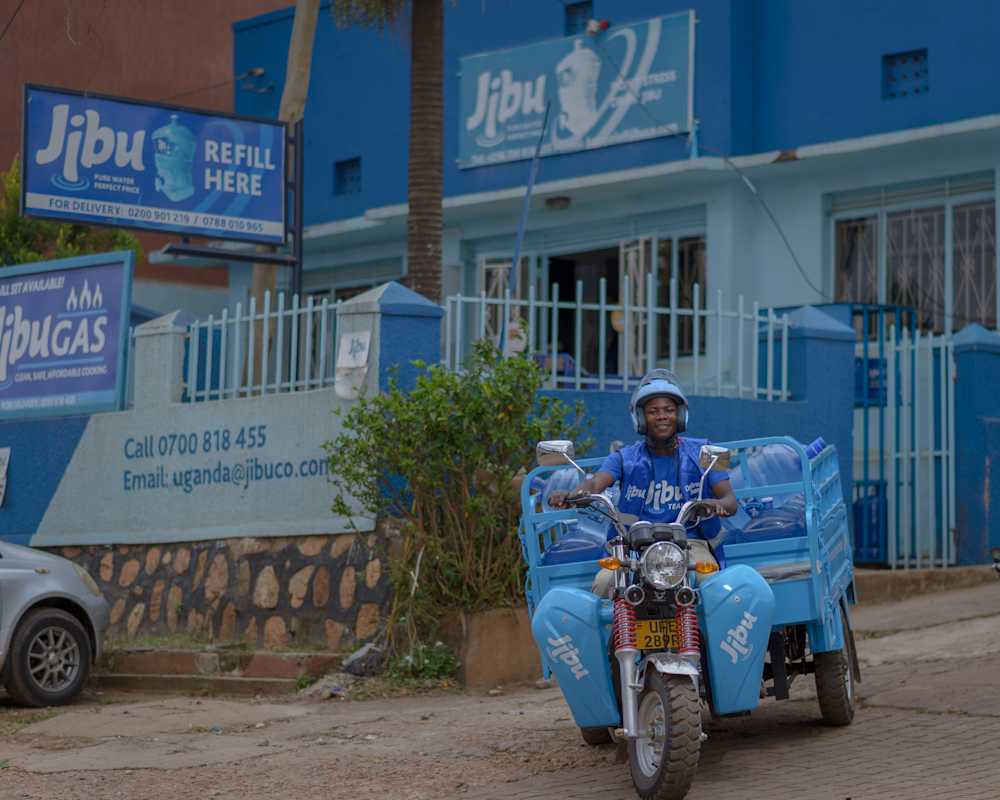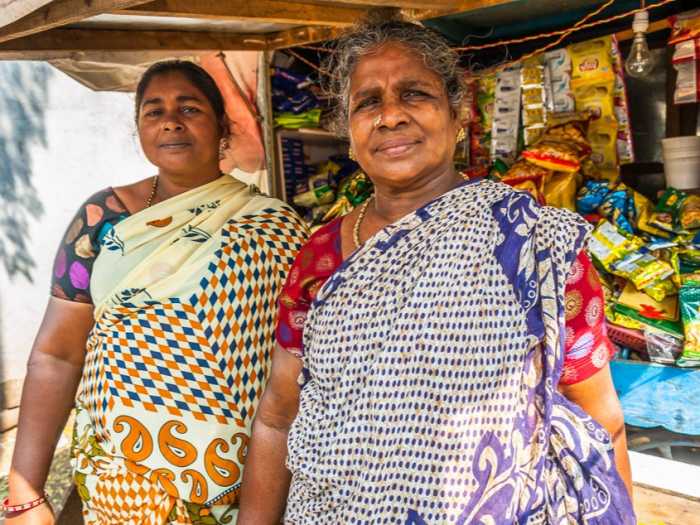An interview with the CEO and Founder of Jibu
How can business solve the water crisis?

When responsAbility, SIDA and Danske Bank joined forces earlier this year to launch a novel Social Bond, one of the key impact targets was the health and WASH (water, sanitation and hygiene) sectors. The business model of Jibu, a portfolio company in the Social Bond, directly targets access to safe water in South-East Africa by equipping emerging market entrepreneurs to create affordable access to drinking water and other necessities.
Jibu means “answer” or “solution” in Swahili. And like the English word in the imperative (Answer!), it is a call to respond. To find out more about their response to the water crisis, we interviewed Galen Welsch, co-founder and CEO of Jibu.

Galen Welsch co-founded Jibu in 2012, and it has quickly become one of the world’s largest social franchises, providing affordable access to drinking water and other essential products to hundreds of thousands, and creating hundreds of new businesses across East and Southern Africa. Galen’s achievements at Jibu have been recognized by BBC World, the Guardian, Fast Company, the Franchise Times, and by Forbes (30 under 30). Galen has been a speaker at Harvard’s Social Enterprise Conference and at the UN General Assembly’s Global Development Lab showcase.
Q: Why was Jibu founded?
A: Jibu was founded in 2012 to address the dual challenges of the global opportunity crisis and water crisis. Over three billion people, many of whom live in urban areas, do not have affordable, daily access to necessities like safe drinking water. At the same time, top entrepreneurial talent lies dormant because of the lack of meaningful business ownership opportunities in emerging markets. Jibu is organized as an L3C (a hybrid social enterprise structure in the USA) that prioritizes our charitable mission while still being profit-making. Profit is the critical enabler of scale. Jibu’s goal is to make impact and make money, without compromising either.
Q: Besides making clean water accessible and affordable, you also promote entrepreneurship. Can you expand on this and the impact it has on individuals and local communities?
A: Jibu leverages a franchise model to create eye to eye partnerships with local entrepreneurs. The Jibu network has created more than one new business per week since we began scaling up in 2015, and these businesses actively employ more than 3,000 people full-time as of September 2021. By decentralizing business solutions, Jibu is not only able to democratize wealth creation, but also embed uniquely resilient, agile, and lasting solutions for the provision of basic necessities like drinking water.
Q: What is your role in promoting entrepreneurship, and why did you decided to get involved in conjunction with running Jibu?
A: I co-founded Jibu on the belief that HOW business is done has greater potential to transform the world than WHAT a business provides to its customers. The impact that a product in and of itself can have is limited relative to the impact that systems change, and business model innovation can generate. Jibu is about creating an opportunity engine for local entrepreneurs, and about inspiring a paradigm shift in how business partnerships are made between old world markets and emerging markets.

Q: What are the main challenges that you (and the company) face?
A: The most common recurring challenges relate to local regulation of safe drinking water enterprises, supply chain input quality and reliability, and the speed of capitalization in light of opportunities available for growth. Overall, though, we face new, unique challenges every day. This keeps us energized because it means we are always progressing. Our core culture at Jibu, inspired by Stanford Lecturer on positive intelligence Shirzad Chamine, is built on the value of ownership and compelled by our attitude that “every challenge is a gift and an opportunity.”
Q: Has the pandemic caused problems for the company? How did you overcome these problems?
A: Fortunately, as a network of locally-owned, essential service providers, Jibu’s existing franchises were able to outperform our pre-COVID volumes in 2020, and have continued to hit targets in 2021, despite continued lockdowns and restrictions. Franchisees not only proved to be hyper-resilient, but more importantly played a critical role in providing safe drinking water to frontline responders and victims of the pandemic via water donations, subsidies, and delivery channel investments.

Q: What impact will the injection of capital from responsAbility have?
A: responsAbility's investment will enable to Jibu to launch more than 30 new production franchises, which will in turn create more than 300 new jobs and extend serviceable market reach to more than 600,000 new end-customers. The investment critically enables the business to maintain momentum, which we can leverage for an additional capital raise.
Q: How do you measure the impact that your company has?
A: Jibu provides a single, integrated (impact+finance) quarterly stakeholder report to donors and investors. Our financial goals are integrally dependent on our impact goals, and vice versa. Our leading KPIs include liters of safe drinking water produced, number of daily end consumers, new businesses launched, % of female-owned franchises launched, profitability of franchisees, and EBITDA of the franchisor.
Q: What does the future hold for Jibu?
A: Jibu has recently opened a USD 20M equity round, led by Aravaipa Ventures. Via partnership with over a thousand new entrepreneurs, this financing will enable Jibu to exponentially improve quality of service and reach to millions of customers. With additional growth, Jibu may have the opportunity to become a publicly traded company via IPO or merger. As a public company, Jibu would have access to the capital we require to transform the opportunity to thrive for entrepreneurs and customers globally.
To hear more about Jibu’s story from the founder, himself, listen to this podcast published by Stanford Social Innovation Review: The Business of Water
